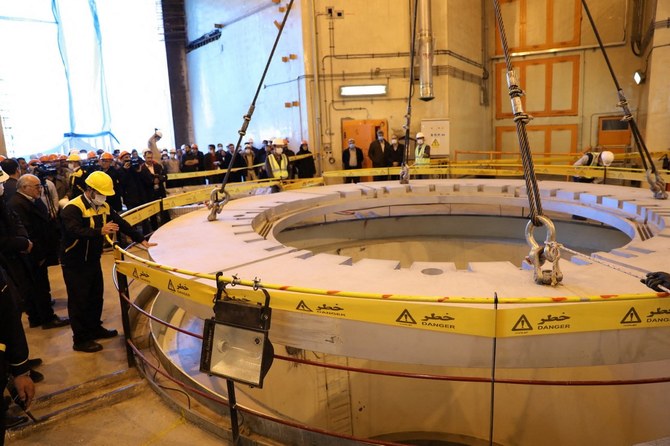Kuwait has said that it was vital for Tehran to allow the UN’s nuclear watchdog to fully investigate the nature of Iran’s nuclear program to assure that it was being implemented for peaceful intentions.
Abdullah Al-Obaidi, Kuwait’s deputy permanent representative to international organizations, said there was a “great deal of uncertainty” on the nature of Tehran’s nuclear program, in a report from state news agency KUNA.
The International Atomic Energy Agency (IAEA) told member states in a confidential report last week that its verification and monitoring activities had been “seriously undermined” since February by Iran’s refusal to let inspectors access their monitoring equipment.
The Kuwaiti diplomat expressed concern about content in the report which said traces of uranium were found at three undeclared nuclear sites in Iran which according to him, still needed a lucid explanation.
Tehran must fully cooperate with the IAEA and allow its inspectors greater access to its nuclear plants as part of efforts to break the impasse, Al-Obaidi said in his statement.
The IAEA report also prompted a US warning that time was running out for Iran to return to a nuclear deal after a scathing report by the UN atomic watchdog.
“I’m not going to put a date on it, but we are getting closer to the point at which a strict return to compliance with the JCPOA does not reproduce the benefits that that agreement achieved,” US Secretary of State Antony Blinken said in Germany earlier, referring to the 2015 nuclear deal by its acronym.
Iran on Sunday agreed to allow international inspectors to install new memory cards in surveillance cameras at its nuclear sites and continue filming there after IAEA chief Rafael Grossi traveled to Tehran for talks with the country’s nuclear research chief Mohammad Eslami.
 A handout picture released by Iran's Atomic Energy Organisation on December 23, 2019 shows the nuclear water reactor of Arak, south of capital Tehran, during a visit by the head of the organisation Ali Akbar Salehi (unseen). - A secondary circuit for Iran's Arak heavy water reactor has become operational as part of its redesign under the 2015 nuclear deal, the country's atomic energy chief said today. (Photo by HO / Atomic Energy Organization of Iran / AFP) / === RESTRICTED TO EDITORIAL USE - MANDATORY CREDIT "AFP PHOTO / HO / ATOMIC ENERGY ORGANIZATION OF IRAN" - NO MARKETING NO ADVERTISING CAMPAIGNS - DISTRIBUTED AS A SERVICE TO CLIENTS ===
A handout picture released by Iran's Atomic Energy Organisation on December 23, 2019 shows the nuclear water reactor of Arak, south of capital Tehran, during a visit by the head of the organisation Ali Akbar Salehi (unseen). - A secondary circuit for Iran's Arak heavy water reactor has become operational as part of its redesign under the 2015 nuclear deal, the country's atomic energy chief said today. (Photo by HO / Atomic Energy Organization of Iran / AFP) / === RESTRICTED TO EDITORIAL USE - MANDATORY CREDIT "AFP PHOTO / HO / ATOMIC ENERGY ORGANIZATION OF IRAN" - NO MARKETING NO ADVERTISING CAMPAIGNS - DISTRIBUTED AS A SERVICE TO CLIENTS === 